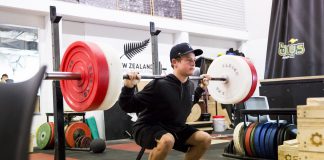Thousands of years ago, the Ancient Greeks incorporated competitive sport as a central part of their culture.
Over time, it became increasingly organised and regulated. Industrialisation brought the increase of leisure time, and with it the advent of spectator sports. Professionalism arrived, and with the help of mass media and globalisation, it skyrocketed.
Today, the global sports market is worth more than $620 billion.
Performance: the dominant conversation in sport.
How can performance be improved?
A search for the answer has permeated the culture of schools, clubs and national sporting organisations all over.
Everyone is looking for the ‘next thing’ that will take their team or athletes to the podium.
However, when performance is the priority, it’s easy to confuse a person for a machine. One that requires high-tech componentry, refined engineering, and just the right type of fuel to run efficiently and perform at its best.
What’s more, education focuses on it. Coach courses and qualifications are dominated by enhancing the machine, providing coaches with the precise technical and physiological knowledge to ‘optimise the output’ of their athletes.
Not surprisingly, coaches and organisations are prioritising winning over the wellbeing of their athletes.
Not surprisingly, we’re hearing about the discrimination of athlete rights and welfare is being questioned.
There is another way.
Instead of performance, we could talk about development.
Instead of conformity, further entrenching the unquestioning, compliant and dependent athlete, we could embrace inquiry.
Instead of enforcing the ‘right’ way, we could spend more time paying attention to personal circumstance and context, give our athletes autonomy to make their own decisions, and help them find whatever way works best for them.
There’s nothing inherently wrong with performance. Nor pursuing excellence.
Except when it comes at the cost of health and happiness.



































